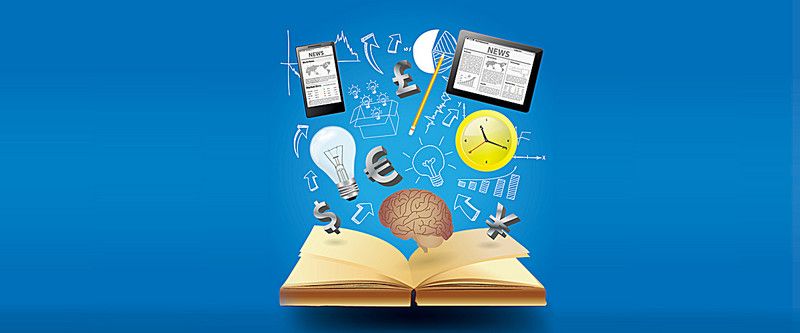
The NNS Application lets you engage in Internet Computer governance, create computation cycles, and send and receive ICP utility tokens.
https://www.geogebra.org/m/bkjaexpp
https://www.geogebra.org/m/fedgtutu
https://www.geogebra.org/m/syhd5nkr
https://www.geogebra.org/m/tjsuntc9
https://www.geogebra.org/m/rejyyyam
The Internet Computer extends the functionality of the global internet so that it can host smart contracts that run at web speed, without any limitations on capacity, transforming it into a public compute platform that empowers developers and entrepreneurs worldwide. A key feature of the Internet Computer platform is the Network Nervous System (NNS), an open algorithmic governance system that oversees the network and the token economics that make it possible to build DeFi and dapps, open internet services, and enterprise systems that are capable of operating at hyperscale.
The purpose of the NNS is to allow the Internet Computer network to be governed in an open, decentralized, and secure manner — and it has complete control over all aspects of the network.
It can, for example, upgrade the protocol and software used by the node machines that host the network; it can create new subnets to increase network capacity; it can split subnets to divide their load; it can configure economic parameters that control how much must be paid by users for compute capacity; it can, in extreme situations, protect the network from malicious actors; and it fulfills many other functions as well. For an in-depth overview of the NNS, refer to “Understanding the Internet Computer’s Network Nervous System, Neurons, and ICP Utility Tokens.”
Below is a quick guide to getting started with the Network Nervous System Application and its key functions. The application currently gives users access to the following four main areas:
ICP Utility Tokens (ICP)
We’ll explain each of these sections and offer details that users should consider when using the NNS Application.
Note: To login to the NNS Application, an Internet Identity is required. If you do not have an Internet Identity, you will first have to create one. (This will only take a minute; see “How to use the Internet Identity service”.) The Internet Identity is a new and more secure single-sign-on solution specifically designed for the Internet Computer. In particular, when logging into the NNS with your Internet Identity, you will receive a unique Internet Identity (aka Principal ID) that is specific to the NNS Application. This Principal ID is not shared between other applications.
The NNS Application lets you engage in Internet Computer governance, create computation cycles, and send and receive ICP utility tokens.
The Internet Computer extends the functionality of the global internet so that it can host smart contracts that run at web speed, without any limitations on capacity, transforming it into a public compute platform that empowers developers and entrepreneurs worldwide. A key feature of the Internet Computer platform is the Network Nervous System (NNS), an open algorithmic governance system that oversees the network and the token economics that make it possible to build DeFi and dapps, open internet services, and enterprise systems that are capable of operating at hyperscale.
The purpose of the NNS is to allow the Internet Computer network to be governed in an open, decentralized, and secure manner — and it has complete control over all aspects of the network.
It can, for example, upgrade the protocol and software used by the node machines that host the network; it can create new subnets to increase network capacity; it can split subnets to divide their load; it can configure economic parameters that control how much must be paid by users for compute capacity; it can, in extreme situations, protect the network from malicious actors; and it fulfills many other functions as well. For an in-depth overview of the NNS, refer to “Understanding the Internet Computer’s Network Nervous System, Neurons, and ICP Utility Tokens.”
Below is a quick guide to getting started with the Network Nervous System Application and its key functions. The application currently gives users access to the following four main areas:
ICP Utility Tokens (ICP)
We’ll explain each of these sections and offer details that users should consider when using the NNS Application.
Note: To login to the NNS Application, an Internet Identity is required. If you do not have an Internet Identity, you will first have to create one. (This will only take a minute; see “How to use the Internet Identity service”.) The Internet Identity is a new and more secure single-sign-on solution specifically designed for the Internet Computer. In particular, when logging into the NNS with your Internet Identity, you will receive a unique Internet Identity (aka Principal ID) that is specific to the NNS Application. This Principal ID is not shared between other applications.
The NNS Application lets you engage in Internet Computer governance, create computation cycles, and send and receive ICP utility tokens.
The Internet Computer extends the functionality of the global internet so that it can host smart contracts that run at web speed, without any limitations on capacity, transforming it into a public compute platform that empowers developers and entrepreneurs worldwide. A key feature of the Internet Computer platform is the Network Nervous System (NNS), an open algorithmic governance system that oversees the network and the token economics that make it possible to build DeFi and dapps, open internet services, and enterprise systems that are capable of operating at hyperscale.
The purpose of the NNS is to allow the Internet Computer network to be governed in an open, decentralized, and secure manner — and it has complete control over all aspects of the network.
It can, for example, upgrade the protocol and software used by the node machines that host the network; it can create new subnets to increase network capacity; it can split subnets to divide their load; it can configure economic parameters that control how much must be paid by users for compute capacity; it can, in extreme situations, protect the network from malicious actors; and it fulfills many other functions as well. For an in-depth overview of the NNS, refer to “Understanding the Internet Computer’s Network Nervous System, Neurons, and ICP Utility Tokens.”
Below is a quick guide to getting started with the Network Nervous System Application and its key functions. The application currently gives users access to the following four main areas:
ICP Utility Tokens (ICP)
We’ll explain each of these sections and offer details that users should consider when using the NNS Application.
Note: To login to the NNS Application, an Internet Identity is required. If you do not have an Internet Identity, you will first have to create one. (This will only take a minute; see “How to use the Internet Identity service”.) The Internet Identity is a new and more secure single-sign-on solution specifically designed for the Internet Computer. In particular, when logging into the NNS with your Internet Identity, you will receive a unique Internet Identity (aka Principal ID) that is specific to the NNS Application. This Principal ID is not shared between other applications.
The NNS Application lets you engage in Internet Computer governance, create computation cycles, and send and receive ICP utility tokens.
The Internet Computer extends the functionality of the global internet so that it can host smart contracts that run at web speed, without any limitations on capacity, transforming it into a public compute platform that empowers developers and entrepreneurs worldwide. A key feature of the Internet Computer platform is the Network Nervous System (NNS), an open algorithmic governance system that oversees the network and the token economics that make it possible to build DeFi and dapps, open internet services, and enterprise systems that are capable of operating at hyperscale.
The purpose of the NNS is to allow the Internet Computer network to be governed in an open, decentralized, and secure manner — and it has complete control over all aspects of the network.
It can, for example, upgrade the protocol and software used by the node machines that host the network; it can create new subnets to increase network capacity; it can split subnets to divide their load; it can configure economic parameters that control how much must be paid by users for compute capacity; it can, in extreme situations, protect the network from malicious actors; and it fulfills many other functions as well. For an in-depth overview of the NNS, refer to “Understanding the Internet Computer’s Network Nervous System, Neurons, and ICP Utility Tokens.”
Below is a quick guide to getting started with the Network Nervous System Application and its key functions. The application currently gives users access to the following four main areas:
ICP Utility Tokens (ICP)
We’ll explain each of these sections and offer details that users should consider when using the NNS Application.
Note: To login to the NNS Application, an Internet Identity is required. If you do not have an Internet Identity, you will first have to create one. (This will only take a minute; see “How to use the Internet Identity service”.) The Internet Identity is a new and more secure single-sign-on solution specifically designed for the Internet Computer. In particular, when logging into the NNS with your Internet Identity, you will receive a unique Internet Identity (aka Principal ID) that is specific to the NNS Application. This Principal ID is not shared between other applications.
The NNS Application lets you engage in Internet Computer governance, create computation cycles, and send and receive ICP utility tokens.
The Internet Computer extends the functionality of the global internet so that it can host smart contracts that run at web speed, without any limitations on capacity, transforming it into a public compute platform that empowers developers and entrepreneurs worldwide. A key feature of the Internet Computer platform is the Network Nervous System (NNS), an open algorithmic governance system that oversees the network and the token economics that make it possible to build DeFi and dapps, open internet services, and enterprise systems that are capable of operating at hyperscale.
The purpose of the NNS is to allow the Internet Computer network to be governed in an open, decentralized, and secure manner — and it has complete control over all aspects of the network.
It can, for example, upgrade the protocol and software used by the node machines that host the network; it can create new subnets to increase network capacity; it can split subnets to divide their load; it can configure economic parameters that control how much must be paid by users for compute capacity; it can, in extreme situations, protect the network from malicious actors; and it fulfills many other functions as well. For an in-depth overview of the NNS, refer to “Understanding the Internet Computer’s Network Nervous System, Neurons, and ICP Utility Tokens.”
Below is a quick guide to getting started with the Network Nervous System Application and its key functions. The application currently gives users access to the following four main areas:
ICP Utility Tokens (ICP)
We’ll explain each of these sections and offer details that users should consider when using the NNS Application.
Note: To login to the NNS Application, an Internet Identity is required. If you do not have an Internet Identity, you will first have to create one. (This will only take a minute;

- If you think that QuickBooks Desktop journal entry was created by mistake and now you want to know how to delete a journal entry in QB read the full article


- The bottom line is that so far, the small business market place has been singing the praises of the Nitro PDF make because it is a less expensive alternative

- India Herbal personal Care Product Market is expected to reach the market valuation of USD 5.2 billion by 2027 expanding at a reasonable CAGR of 9.3%